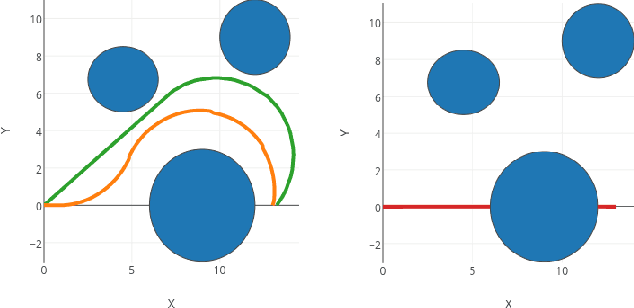Representing Hybrid Automata by Action Language Modulo Theories
Paper and Code
Jul 25, 2017


Both hybrid automata and action languages are formalisms for describing the evolution of dynamic systems. This paper establishes a formal relationship between them. We show how to succinctly represent hybrid automata in an action language which in turn is defined as a high-level notation for answer set programming modulo theories (ASPMT) --- an extension of answer set programs to the first-order level similar to the way satisfiability modulo theories (SMT) extends propositional satisfiability (SAT). We first show how to represent linear hybrid automata with convex invariants by an action language modulo theories. A further translation into SMT allows for computing them using SMT solvers that support arithmetic over reals. Next, we extend the representation to the general class of non-linear hybrid automata allowing even non-convex invariants. We represent them by an action language modulo ODE (Ordinary Differential Equations), which can be compiled into satisfiability modulo ODE. We developed a prototype system cplus2aspmt based on these translations, which allows for a succinct representation of hybrid transition systems that can be computed effectively by the state-of-the-art SMT solver dReal.
 Add to Chrome
Add to Chrome Add to Firefox
Add to Firefox Add to Edge
Add to Edge